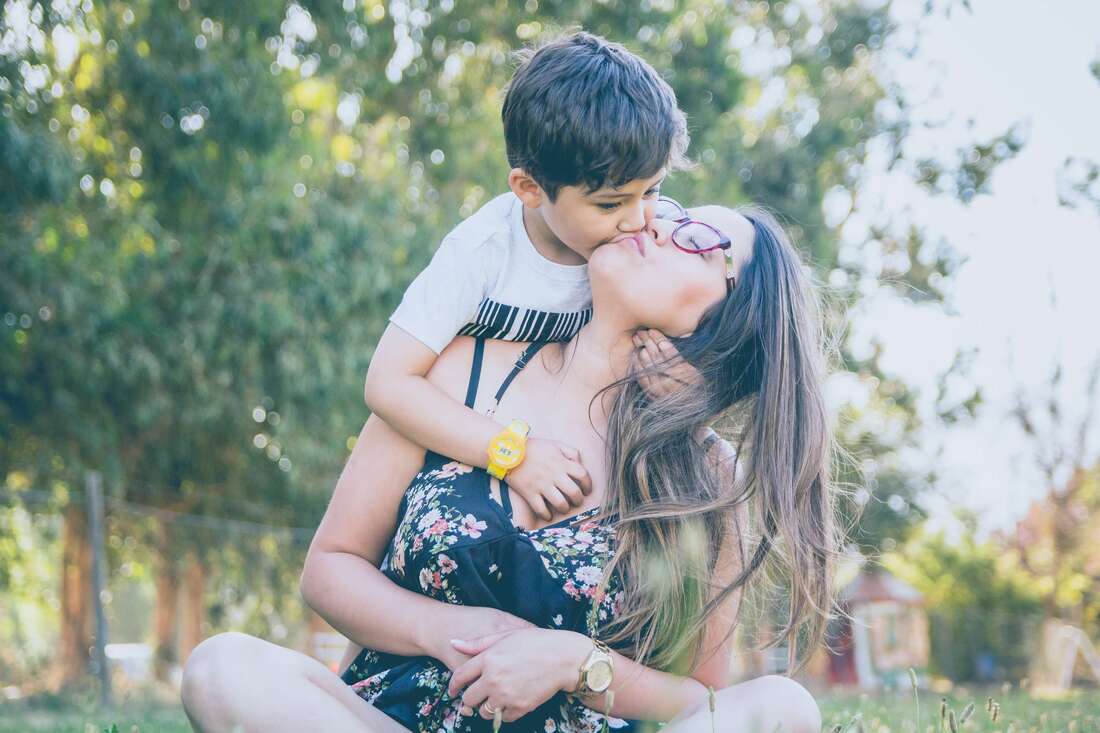The Importance of Understanding the Past
There is a widely held misconception that therapy is all about sitting and talking about the past. In actuality, at its best, therapy is present and future oriented. However, we do revisit our past in therapy, and for good reason. We can’t fully and consciously participate in the unfolding of our lives in the present if we are still being unconsciously impacted by things that happened to us in the past.
Processing our childhoods—understanding through the lens of our adult selves, how our experiences impacted us and allowing our bodies to fully integrate the emotions connected with these experiences—is the key to healing pervasive issues such as low self-worth, perfectionism, anxiety, people-pleasing, and codependency. Most of us are carrying some level of childhood trauma, and everyone can benefit from processing their childhood experiences.
1. Unresolved childhood trauma isn’t fun to live with.
Many of us were taught to avoid difficult feelings. We might have been taught to “leave the past in the past” and to “just keep moving forward,” as if everything painful we’ve ever experienced will magically disappear if just we ignore it for long enough.
Unfortunately, that’s not how our brains work. The things we ignore don’t go away. In fact, they tend to get stronger, louder, and more obnoxious, until we finally listen and give them the attention they deserve.
When unresolved trauma is trying to get our attention in order to be properly addressed it often looks like depression, anxiety, irritability, an exaggerated startle response, difficulty relaxing, dissatisfying or toxic relationships, difficulty concentrating, intense and out of control emotions, compulsive/addictive behaviors, insecure attachment styles, “trust issues,” and the list goes on. These symptoms and patterns are the body’s way of getting our attention and letting us know that all is not well.
Childhood trauma is healed by consciously revisiting and integrating our difficult experiences in the context of a safe, supportive relationship.
| When we don’t address our childhood trauma we pass it down, in one form or another, to our own children. As parents we have the best of intentions with our kids, and often one of those intentions is to do better than our own parents did. But how can we do better if we aren’t even clear on how things went wrong for us? When we choose to heal ourselves, the intergenerational trauma ends with us. |
3. Self-understanding.
We cannot fully understand ourselves until we understand where we came from and the experiences that shaped us. The better we understand ourselves, the more conscious choice we have in our lives. Which might sound simple, and even a bit cliché, but in my opinion, this is the most important one on this list.
I believe that we all have specific soul work and soul lessons we have to come into our lives to grapple with. The more conscious effort we put into understanding ourselves, the more deeply we are able to connect with the meaning and purpose behind our lives. In that way, healing our childhood trauma is spiritual work.
Intentionally and consciously revisiting traumatic memories rewires the brain.
| When we revisit memories in the context of a safe, supportive relationship we get to experience that memory, and all the feelings attached to, it in a different, more accurate, and adaptive way. This allows us to integrate these experiences so that our nervous system is no longer in a constant state of dysregulation. The key to long term, lasting brain and nervous system change is repetition. The pathways in our brain are much like trails through the woods—the most well worn paths are the ones that get a lot of use, the ones that are rarely used are eventually overgrown and disappear. This is why coming to therapy with consistency—on a weekly basis, at minimum—when in the active stages of healing, is so important. |
5. Eventually, you start to feel better.
Ultimately, you get to enjoy life in a brand new way. Over time your body and mind will begin shifting in subtle ways. At first you might not even notice the changes, but one day you will wake up and realize things that were once tremendously upsetting to you and at one time might have thrown off your whole day, don’t impact you in the same way. Your baseline anxiety has gone down and your self-worth has gone up. You no longer hate yourself. Who can put a price tag on that? Healing our early trauma is one of the most important and life changing gifts we can give to ourselves!
To read more, check out my blogs on inner child healing and healing inner child wounds.
Meet the Author
| Ready to heal your relationship with yourself? Maggie is a therapist based out of Lawrence, Kansas who specializes in therapy for highly sensitive adults, therapy for self-esteem, therapy for anxiety, therapy for childhood trauma, and grief and bereavement counseling. Maggie is passionate about helping people overcome shame and the fear of being their true selves. Breaking the cycles of people-pleasing and self-abandonment is possible; you don't have to suffer alone. Maggie offers online therapy throughout the state of Kansas. Reach out today to schedule your free 15 minute phone consultation! |
Other Services Offered by Maggie
In addition to providing online therapy anywhere in Kansas, Maggie is also a professional astrologer, and offers Birth Chart Readings anywhere in the United States, as well as abroad.
Astrology is a powerful tool for gaining self-awareness, finding meaning in and understanding of our difficult experiences, and for receiving validation regarding our own unique life path. All of which supports our mental health in a positive way!
Interested in getting a Natal Chart Reading? Book a free phone consultation and let’s get started!





 RSS Feed
RSS Feed
